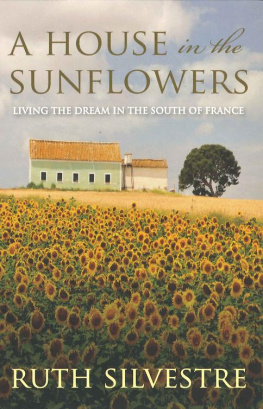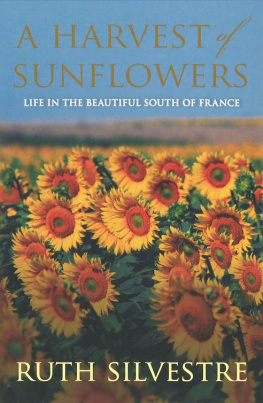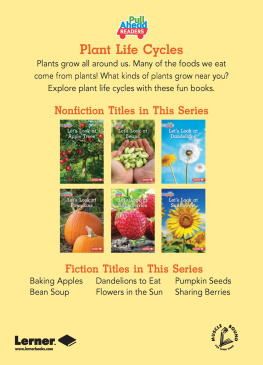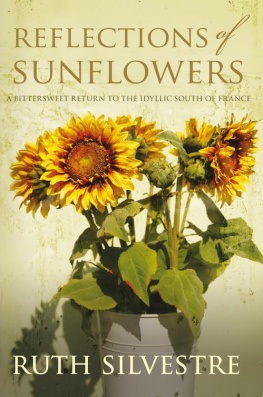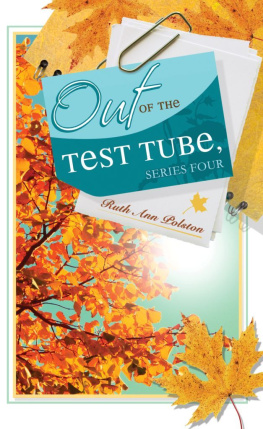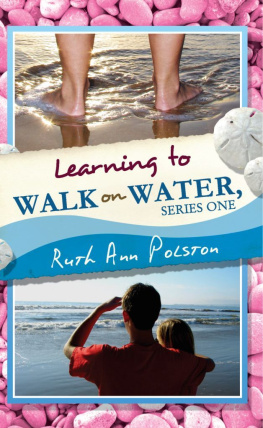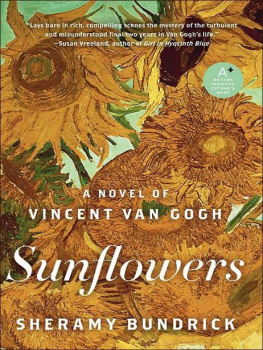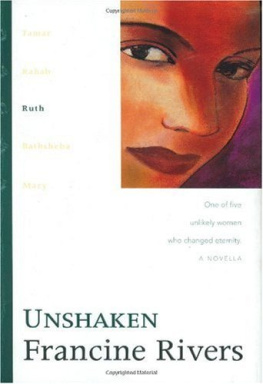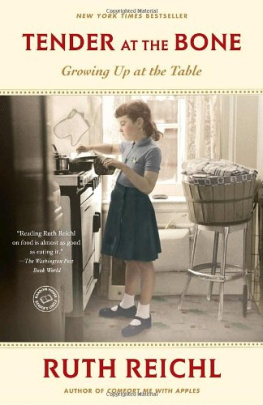Ruth Silvestre - A House in the Sunflowers
Here you can read online Ruth Silvestre - A House in the Sunflowers full text of the book (entire story) in english for free. Download pdf and epub, get meaning, cover and reviews about this ebook. year: 2013, publisher: Allison & Busby, genre: Non-fiction. Description of the work, (preface) as well as reviews are available. Best literature library LitArk.com created for fans of good reading and offers a wide selection of genres:
Romance novel
Science fiction
Adventure
Detective
Science
History
Home and family
Prose
Art
Politics
Computer
Non-fiction
Religion
Business
Children
Humor
Choose a favorite category and find really read worthwhile books. Enjoy immersion in the world of imagination, feel the emotions of the characters or learn something new for yourself, make an fascinating discovery.
- Book:A House in the Sunflowers
- Author:
- Publisher:Allison & Busby
- Genre:
- Year:2013
- Rating:5 / 5
- Favourites:Add to favourites
- Your mark:
- 100
- 1
- 2
- 3
- 4
- 5
A House in the Sunflowers: summary, description and annotation
We offer to read an annotation, description, summary or preface (depends on what the author of the book "A House in the Sunflowers" wrote himself). If you haven't found the necessary information about the book — write in the comments, we will try to find it.
A House in the Sunflowers — read online for free the complete book (whole text) full work
Below is the text of the book, divided by pages. System saving the place of the last page read, allows you to conveniently read the book "A House in the Sunflowers" online for free, without having to search again every time where you left off. Put a bookmark, and you can go to the page where you finished reading at any time.
Font size:
Interval:
Bookmark:
Gentle, wry, sometimes sad, it has all the pleasures of an authentic love affair
The Times
Both romantic and funnythe book lovingly portrays the peoplehistory, food and traditions of this beautiful French region
Summer Break Magazine
Exubertantly detailedthe authors great merit is that she makes us accept it on such enchanting terms
The Observer
Fine attention to detail and a full sense of the Frenchness of life. Readersshould enjoy this book with its real taste of Aquitaine
Oxford Times
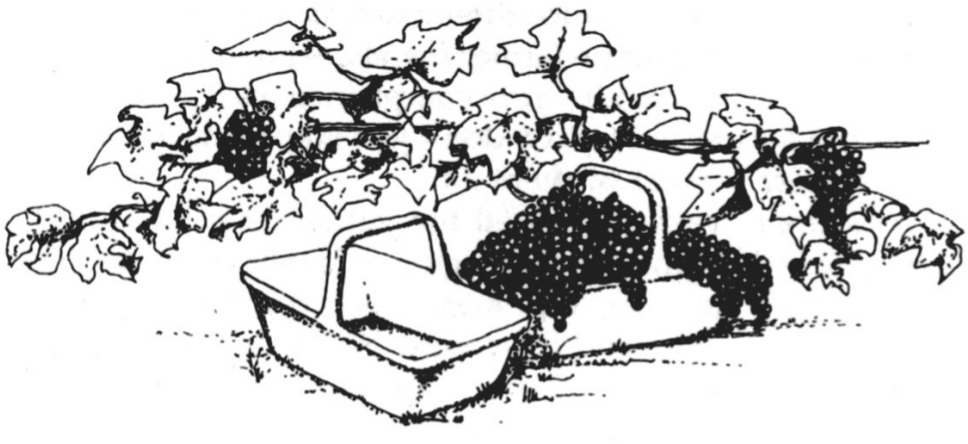
Summer is over. It is late October and once again we are packing up the house. We are making our preparations to return to London, to spend the winter in the smoke and, as always, wondering why. We are reluctant to acknowledge that as the days shorten and the temperature drops, and life must be lived indoors, we will need those other stimuli which only the city can provide. Yet, looking up at the wide blue sweep of sky where a pair of finches trill ecstatically on the wire, we dread the change, wonder how long it will take us to adjust this time and what it would be like simply to stay on.
We have spent the last twelve summers in our second home in this wonderfully unspoiled region of south west France where history seems to stalk the narrow village streets. I feel it when I am shopping in Monflanquin as I walk under the shadowed archway of the Black Princes house, or in the sudden view of the great castle of Bonaguil, built high on a rock in a lush, wooded valley by one Berenger de Roquefeuil, last impassioned defender of an already outdated feudal system; or, yet again, when I see the eloquent line of upstretched arms on the memorial in the village of La Capelle Biron from where, one Sunday in May 1944, all the men were deported.
This year it will be even harder to return to England for we have been here now for three months, our longest stay so far. Our neighbouring farmer friends, who over the years have become like family, have complained each year. You always leave too early. Why dont you stay for lavendange? Its the best harvest of them all.
With them we have shared the gathering in of almost everything that grows in this region of lapolyculture. Weve helped with the hay, the straw, tobacco, potatoes, the massive plum crop and the maize. We have watched the sunflowers turn from golden splendour to a desiccated umber before they fall beneath the combine and leave the fields silver with tough dry quills like a porcupine.
There are so many machines now. Many more than there were twelve years ago. Machines to cut and separate and spit out what is valuable into containers, leaving the residue for yet another machine to chop and chew and return to the soil. Raymond, our farmer, is proud of them. Some he owns, others he shares with a small group of neighbouring farms.
So whats so special about la vendange? we ask again. Another new machine?
No, no. He and his wife Claudette shrug and laugh, almost embarrassed. They cannot explain. And so we stayed to find the answer.
Last week, my arms covered in copper sulphate, I harvested grapes from early morning until I watched the last load tumble from the trailer into the screw of the giant mincer at the local Cave Cooprative des Sept Monts. The red sun slithered down behind the hill-top town of Monflanquin and darkness crept like a moths wing across the fields. Monflanquin, Montagnac, Monsegur, Monreal, Monsempron, Montayral, Monbaillou the litany of names of les Sept Monts after which the Cave Cooprative is named; each a small ancient town, built on a gentle undulation rather than a steep hill, in this lovely corner of France between the rivers Lot and Garonne.
The vineyard, which had once been part of our property, is in a magnificent situation high on a south-facing slope. On a clear day you can see the Chateau of Biron on the horizon. The air was sweet and clean and, walking down to join the others, secateurs in pocket and basket in hand on a calm October morning, the sun dispersing the last traces of mist, I wondered why I ever wanted to be anywhere else.
For the vendange we were a group of about twenty, most of whom I recognised; Raymond and Claudette, the patron and his wife, and Lucienne his mother-in-law, frail and bent in her Wellingtons and battered straw hat with its jaunty band of flowered cotton. There was small but stalwart Fernande from the next village with her wide, leathery face and wrinkled stockings and, dwarfing her completely, Mme Barrou who farms just outside our village and is famous for her conversation and her carrots. Huge, broad-shouldered and affectionate, she wrapped me in her strong arms and kissed me warmly.
a va? Et alors vous allez vendanger?
a va. Oui. Cest la premirefois. Its the first time Ive done this. Youll have to show me how.
She laughed her great laugh. Its easy, she roared. Youre lucky today. Look at the weather. This is not le midi, mon brave. In the sud ouest it can be cold and wet and then its no fun I can tell you.
Next to her was M. Flor who had been the Mayor of our village when we first bought the house. As he shook my hand I noticed with a sense of shock how he had aged and realised that lately I could only have seen him from a distance giving me a wave as he passed on his tractor. And the tall young man at his side must be his son Guillaume. I remembered him as a twelve-year-old , a year younger than Matthew was when we first came here. I remembered him particularly because, like our younger son, he was asthmatic. He looked bronzed and fit now as he joked with a group of young men, most of whom had the local face, dark-eyed, broad and flat with a short nose and wide, upturned mouth.
My husband Mike and I watched for a few moments before joining the lines of the pickers, one on each side of the row of vines. We saw that each vendangeur worked slightly ahead of the person opposite, the reason becoming quickly apparent when we started. It was necessary to thrust ones hands through the thick leaves while feeling for the stems, which were often so convoluted and strong that they were difficult to cut even with sharp secateurs. Once severed the bunches were unexpectedly heavy and pleasing to handle.
The dark-haired woman working opposite me smiled through the leaves. I dont think you know me, she said, but my brother is the tiler. He did your kitchen floor about ten years ago. Do you remember him?
Of course. And I remember too that he was so pleased to do the job because, he told me, he had a sister who was a wonderful cook living nearby and he would be able to eat with her at midday.
She laughed. You know where I live?
Yes. The house in the dip. Just past the little bridge.
Thats the one. Why dont you call in one day when you come back from the market?
Our baskets soon filled. The only machine in use was the oldest tractor, bought in 1947, which pulled the container into which the grapes were tipped. Those, like me, who were not strong enough to swing the heavy baskets up and over the edge had to shout Panier plein! and wait for a pair of strong brown arms to stretch through the leaves, lift the basket and return it empty. Apart from the chugging of the old tractor and the fact that our baskets were plastic, la vendange it seemed was much as it had been in the old days. Autrefois the nostalgic expression we hear so often here. Could this be why it was so special?
Font size:
Interval:
Bookmark:
Similar books «A House in the Sunflowers»
Look at similar books to A House in the Sunflowers. We have selected literature similar in name and meaning in the hope of providing readers with more options to find new, interesting, not yet read works.
Discussion, reviews of the book A House in the Sunflowers and just readers' own opinions. Leave your comments, write what you think about the work, its meaning or the main characters. Specify what exactly you liked and what you didn't like, and why you think so.

